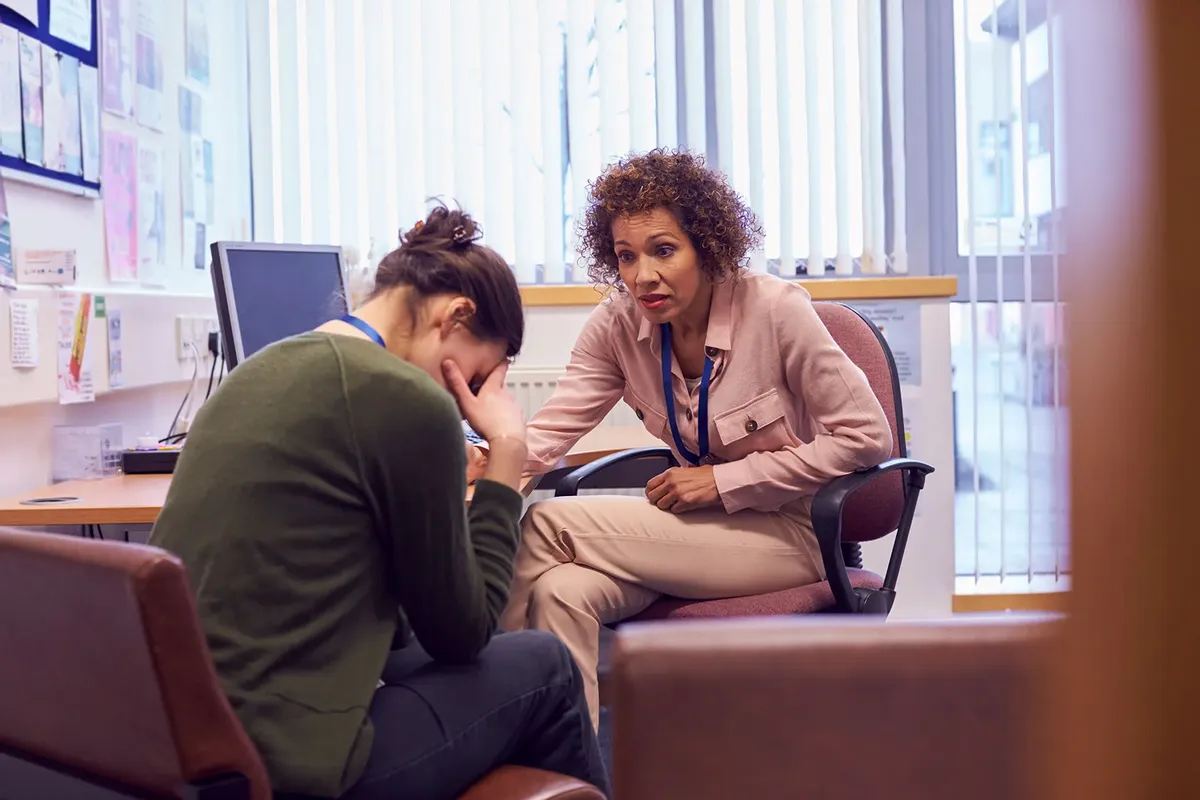Why Thai college students should talk to their guidance counsellors

College life can be overwhelming, but guidance counsellors are essential resources for academic planning, mental health support, and the admissions process. They offer knowledge and support, from creating a tailored educational plan to accessing resources. Regular meetings with guidance counsellors establish a supportive relationship throughout college, enabling students to achieve their academic and personal goals. Start the conversation today to unlock the full potential of your college experience.
Importance of guidance counselling in college

Addressing mental health and wellbeing
In Thailand, the percentage of college students suffering from severe depression, anxiety, and stress is more than 15% while other studies showed that 40% suffer from stress and 30% suffer from depression. If you are part of these numbers, talking to your guidance counsellors will allow you to express any of your concerns and in return, they will help guide you through these feelings during your college years and improve your mental resilience. They are not only trained in academic advising but also emotional support. Guidance counsellors are professionals and they keep their sessions confidential, so you don’t have to worry about word getting out there.
Transitioning through major life changes
Entering college marks a significant transition in our lives that is both exhilarating and demanding. Guidance counsellors play a crucial role in helping students adapt to these changes, particularly during their first year. They provide essential strategies to manage this new phase effectively, ensuring students maximize their college experience. Their support is invaluable during various transitions in life, positively impacting overall personal development.
Key benefits of regular sessions

Academic guidance and support
Meeting regularly with your guidance counsellor is important for your college life. When you mix your academic dreams with their expert advice, you ensure you’re heading in the right direction to achieve your learning goals. Your counsellor will work with you to whip up a personalised academic plan that fits your future job hopes, making even the tricky stuff easier to handle. If you’re finding certain topics or class choices a bit tough, your counsellor’s there to point out things you might not get just from your class materials or descriptions. Plus, they keep an eye on how you’re doing in school, spot places where you might need more help, and recommend better study tricks or resources.
Personal growth and development
Regular sessions with your guidance counsellor are critical for ongoing personal and emotional development. These sessions offer a safe space where students can openly discuss their concerns, whether related to school or their daily emotions. Guidance counsellors play a crucial role in assisting students to manage stress and anxiety more effectively. They support students in understanding their strengths, areas for improvement, and potential career paths. The guidance provided is not merely a temporary solution but aims to equip students with lifelong skills, addressing personal challenges and preparing them for future professional obstacles.
How to approach your guidance counsellor

Setting up initial meetings
Initiating contact with your guidance counsellor can be scary at first, but that initial step is important if you want to improve your life. Depending on how your university does it, usually you will
-
Email or fill out a form that you want to apply for guidance counselling.
-
Check their availability through your school’s portal or the counselling centre.
-
Book the session!
Extra tips:
-
Schedule your meeting when you are not in a rush so that you can openly discuss what you want to talk about without any disruptions
-
Find a time that does not disrupt your classes
-
Be open and ready to engage
Preparing questions and topics for discussion
Before meeting with your guidance counsellor, prepare a list of questions and topics you wish to cover. This preparation makes your sessions productive and ensures you don’t overlook important issues. Topics might include academic advice, career planning, stress management, or even juggling part-time work alongside your studies.
Craft questions that are specific and direct such as:
-
“What steps can I take to improve my academic performance?”
-
“Can you help me explore suitable career options based on my current academic performance?”
By being prepared, you demonstrate your commitment to your personal and academic growth, helping your counsellor provide the most effective guidance tailored to your unique situation.
Overcoming stigma around counselling

Normalising conversations about mental health
In Thailand, mental health is often perceived as a sign of weakness due to the prevalent belief that psychological issues stem from an inability to overcome simple sadness. However, it’s important to talk about mental health since it’s more complicated and tough to work on. Getting support and guidance from your counsellors as a college student will allow you to grow and improve as an individual. Normalising conversations about mental health will benefit you and others who are also suffering from the same things as you.
Sharing success stories
It’s comforting to hear how others have benefited from counselling. A lot of students find that having a chat with a counsellor helps them see their school and personal stuff in a whole new light. There are lots of stories out there about students who managed to tackle their school stress, handle their daily pressures better, and make smarter choices about their plans after just a few sessions. These positive stories aren’t just feel-good moments; they really show how helpful speaking to a counsellor can be. They also nudge other students to give counselling a try. So, why not talk to your counsellor? Who knows, maybe you’ll be the next one sharing an inspiring story, encouraging your mates to get some guidance too.
Talking to your college guidance counsellor can change the game for you academically and personally. Don’t forget, you’re not the only one trying to figure this out—lots of your classmates are in the same boat. Talking to a counsellor helps clear up all the fog around mental health and pushes you closer to nailing your educational aims with a lot more confidence and clear-headedness. Dive into this opportunity and see how it makes a positive difference in your college life.
Latest Thailand News
Follow The Thaiger on Google News:


























